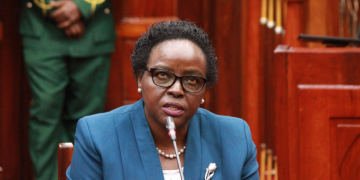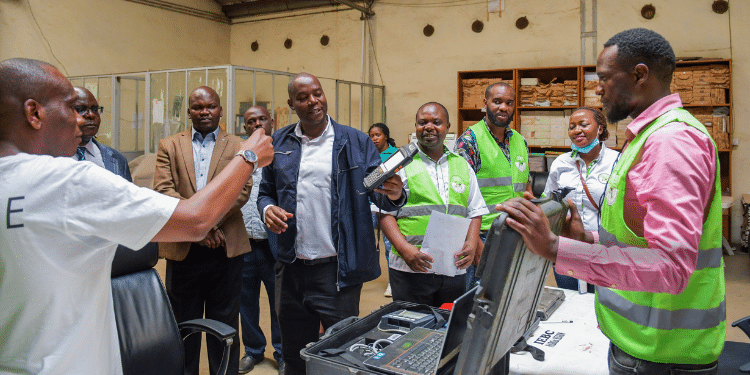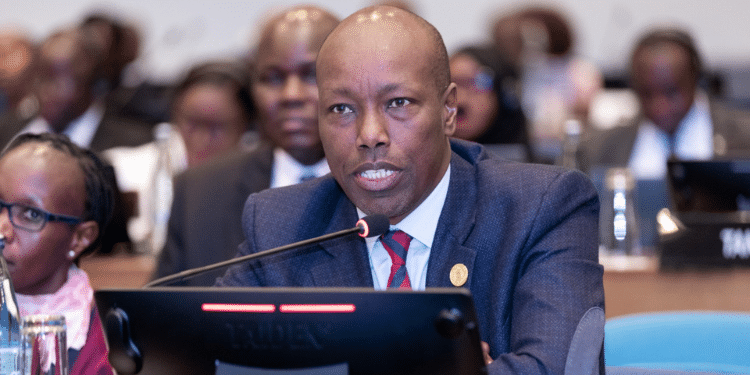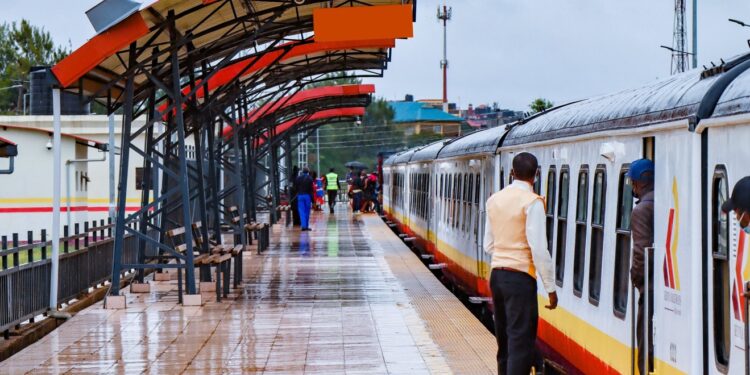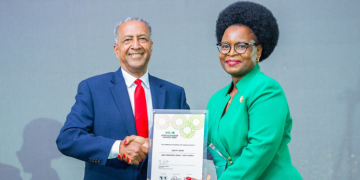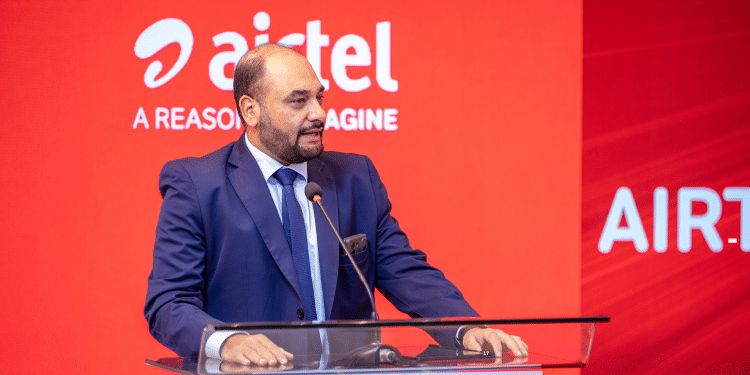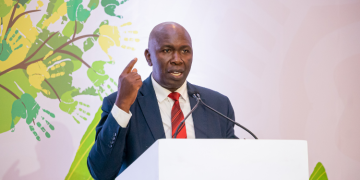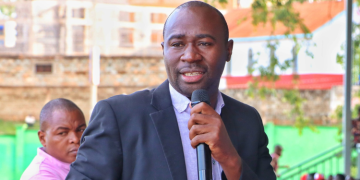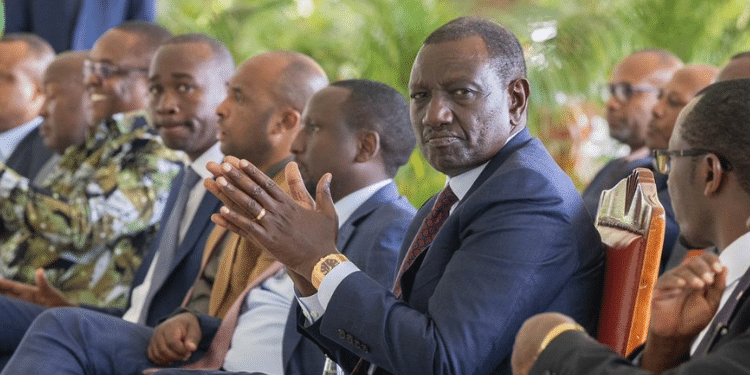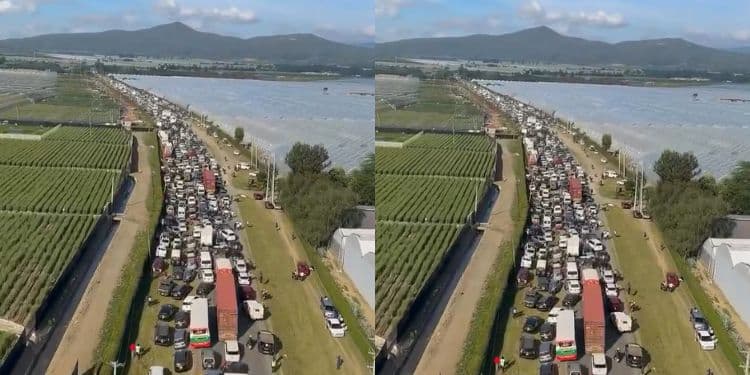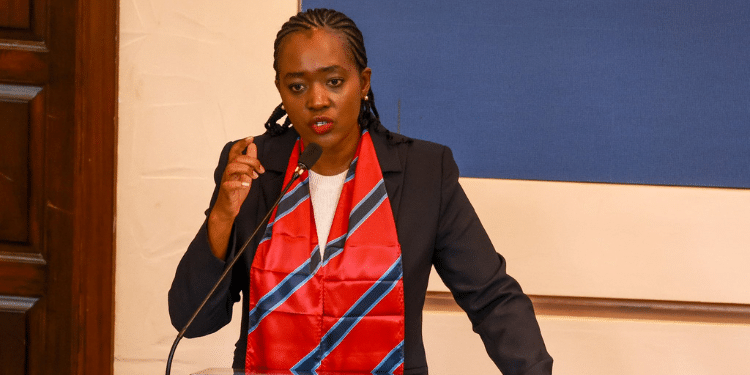Senior state officials in the security department, including Defence Cabinet Secretary (CS) Soipan Tuya, are increasingly taking to the podium, giving what is beginning to feel like a season of state lectures.
Each of them is delivering weighty speeches that spark debate, shape narratives, and stir the national mood.
On Thursday, April 1, Defense Cabinet Secretary Soipan Tuya delivered a high-level lecture of opportunity (HLLOO) to the National Defence College (NDC) Course No. 27 of 2024/25 on the nexus between climate change and security.
Soipan stated that climate change exacerbates security risks by intensifying resource competition, food and water insecurity, displacement, and conflict, acting as a threat multiplier.
“By worsening inequalities, straining governance, and increasing intergroup tensions, climate change weakens resilience and heightens vulnerabilities, contributing to instability and conflict,” she said.
Details of CS Soipan Tuya Lecture
According to the CS Tuya, effective climate security interventions must therefore integrate environmental resilience with conflict prevention, addressing both ecological degradation and security risks.
This comes just weeks after the Chief of the Defence Forces (CDF), General Charles Kahariri, delivered a keynote address at the inaugural public lecture hosted by the National Intelligence Research University (NIRU) on March 27, 2025.
The event, held under the theme “Kenya’s Evolving National Security Landscape,” brought together leaders from various sectors to explore Kenya’s security challenges, strategic positioning, and the evolving role of intelligence in an increasingly complex world.
In his address, General Kahariri emphasized the critical role of strategic intelligence in addressing Kenya’s evolving security threats.
Also Read: Defence Ministry Asks for Money to Establish Space Centre
He underscored the shifting global geopolitical landscape, marked by great power rivalries and persistent conflicts, warning that such dynamics pose both direct and indirect risks to national stability.
Kahariri stressed the importance of Kenya proactively navigating these regional and international shifts to safeguard its national interests and maintain economic resilience.
On the domestic front, the General pointed to growing democratic space and heightened public awareness as factors that require strategic and adaptive leadership to uphold internal stability.
Kahariri called on policymakers, intelligence analysts, and security professionals to provide forward-looking insights that will enable the country to respond effectively to a rapidly changing global environment while protecting and advancing its national priorities.
Also Read: NIS Recruitment, Requirements, Process and Salary
Noordin Haji and PS Raymond Omollo Hold Lectures
At the same event, National Intelligence Service (NIS) Director General Noordin Haji delivered a historic address—the first-ever public lecture by a serving agency chief.
He acknowledged the need for a new era of transparency and public engagement in today’s information age.
Haji emphasized that in a democratic state, silence should never be mistaken for impunity, underscoring the importance of balancing operational secrecy with public accountability.
He, however, warned of the dangers of overexposure stating, “If a blanket keeps you warm through the storm, it may not always be wise to unravel the stitches to understand how.
“In seeking to know every thread, you may undo the very thing that shields you.”
Similarly on Wednesday, April 9, Interior Principal Secretary (PS) Raymond Omollo delivered a lecture at the National Defence College (NDC), Karen, on Kenya’s Internal Security.
The PS shared insights on the evolving security landscape, key challenges and strategic interventions being implemented to safeguard national safety and stability.
“Drawing from our mandate at the Department for Internal Security and National Administration, I highlighted the multi-agency approach, community policing efforts and policy reforms anchored in the Bottom-Up Economic Transformation Agenda (BETA) to strengthen internal security structures,” he said.
Follow our WhatsApp Channel and X Account for real-time news updates.





